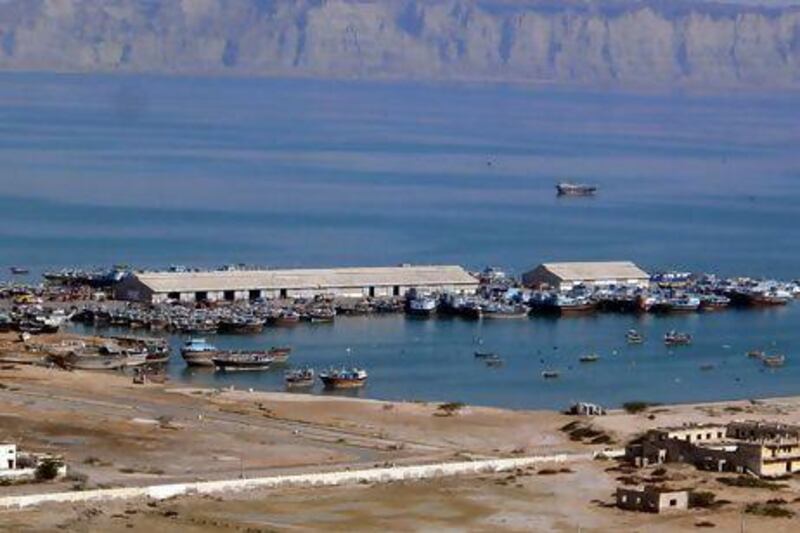Pakistan plans to use a port in the Arabian Gulf to import coal and to reduce its dependence on more costly GCC oil. That dependence is "killing its economy", said the country's water and power minister in Dubai yesterday.
One of the aims of the expansion of Gwadar port in Pakistan's Balochistan province is to help Pakistan to overcome an energy crisis by widening the mix of its power supply. The port is financed more than 80 per cent by the Chinese.
Currently oil from Saudi Arabia, the UAE and Kuwait has accounted for "almost all" of Pakistan's energy imports, said Khawaja Asif, the water and power minister, speaking on the sidelines of the US-Pakistan Business Opportunities Conference in Dubai.
"We can develop some area close to Gwadar port for coal imports and coal-based plants. We will import coal from different places like South Africa, Indonesia and Australia," said Mr Asif. "It will lessen our dependence [on oil].
"The energy mix we have today is killing our economy and not providing us with cheap electricity."
Located at the mouth of the Arabian Sea, Gwadar port is viewed as a key tool in helping the country to broaden its energy mix in addition to unlocking regional trade.
Pakistan is looking for solutions to meet an energy crisis that is estimated to be costing its economy $13.5 billion every year. Industry and business are regularly disrupted by blackouts as power output fails to keep up with growth in the world's sixth most heavily populated nation.
"Blackouts have dealt a strong blow to economic growth," said Moazzam Malik, the chairman and chief executive of BMA Capital, a Pakistani financial firm.
"There are going to be energy sector reforms but this requires tough decisions involving tariff changes and phasing out untargeted subsidies."
Mr Asif invited GCC investors to help meet Pakistan's energy challenge. "The gap in our energy needs is huge, so it calls for huge investment," he said. "We would like our brothers in the GCC to invest in coal-based or projects which can produce cheaper energy. "There are massive opportunities in hydropower in Kashmir [a region where both India and Pakistan have areas of control] and other northern areas."
Coal accounts for only 1 per cent of Pakistan's energy generation even though Thar mines in Pakistan's Sindh province account for the world's third-largest coal reserves. While Gwadar will help to serve Pakistan's energy needs, attracting greater scrutiny is China's plans to use the facility.
In February, the management of the port was handed from Singapore's PSA International to Chinese Overseas Port Holdings. Gwadar's close proximity to the Strait of Hormuz, through which a large portion of the world's oil flows, will give energy-hungry China closer access to GCC crude.
The two sides plan to link Gwadar, in the south-west of Pakistan, with China's far western province of Xinjiang through road and rail connections. The proposals have stirred anxiety among officials in New Delhi , where there are concerns that the facilities may be part of a Chinese attempt to encircle India through a string of overseas ports stretching from Gwadar to Myanmar.
Mr Asif played down the geopolitical significance of the port.
"It's purely a commercial thing and will develop a backward province of Balochistan and create job opportunities," he said.
The port aspired to follow the lead set by the thriving commercial trading hubs of Dubai and Singapore, he added. The government of Pakistan's newly elected prime minister, Nawaz Sharif, has declared Gwadar a duty-free port on the lines of Jebel Ali.
"In Dubai and Singapore and all of these ports there economies are based on their ports and access to major sea routes," Mr Asif said.





